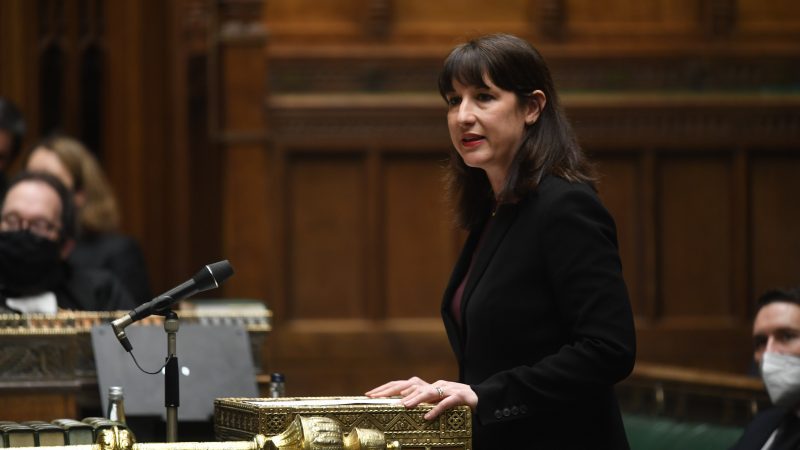
Rachel Reeves has declared that Britain “deserves more than just survival” after it was revealed that food prices rose at a record rate in December amid the ongoing cost-of-living crisis.
According to the latest research from trade body the British Retail Consortium (BRC) and data firm Nielsen, annual food inflation increased to 13.3% in December, the highest monthly rate since records began in 2005.
Responding to the figures, the Shadow Chancellor said: “Families will be looking at the year and wondering whether they will ever feel better off under the Tories. With the growing cost of the weekly shop just one factor in this, the answer will be no. Britain deserves more than just survival – working people want our country to thrive.
“By stabilising our economy and getting it growing, Labour will get money flowing back into it so we can raise living standards and so we can lead in the industries of the future too. All 12 years of Tory government have left us with is higher prices, lower wages and growth on the floor.”
The research from the BRC and Nielsen found that food inflation rose to 13.3% in December, compared to 12.4% in November. Fresh food prices rose at a record rate of 15% in December, up from 14.3% the previous month.
Non-food inflation decreased to 4.4% in December from 4.8% in November. Overall shop price inflation fell slightly from 7.4% to 7.3%, though the BRC noted that the decrease still “leaves shop prices remaining near record-highs”.
BRC chief executive Helen Dickinson said many households had faced a “challenging Christmas”, adding: “2023 will be another difficult year for consumers and businesses as inflation shows no immediate signs of waning.”
UK inflation fell to 10.7% in November, down from 11.1% the previous month, the sharpest rate of decline in 16 months. But prices continue to rise, at a slower rate, with the increasing cost of going out to restaurants, cafes and pubs making the largest upward contribution to the inflation rate.
Commenting at the time, Resolution Foundation senior economist Jack Leslie said: “With price rises still massively outstripping pay rises – and Britain’s poorest families facing an inflation rate of over 12% – families are still getting poorer month-on-month, and the cost-of-living crisis will continue to deepen in 2023.”
Lower income households spend more of their budgets on energy bills and food, meaning their effective inflation rate is higher than average. The Resolution Foundation calculated that the effective inflation rate for the poorest tenth of households was around 12.1%, compared to 9.4% for the richest tenth.
According to polling from the TUC, published in October, more than two-fifths of Britons were having to reduce spending on food as a result of increasing costs – rising to six in ten in certain parliamentary constituencies.
The research, carried out by Opinium, revealed that one in seven people across the UK were having to skip meals or go without food in the face of rising costs. In 47 constituencies, the figure was one in five or higher.
The polling found that Birmingham Ladywood had the highest proportion of constituents missing out on meals at 29%, followed by Dundee West on 27% and Glasgow and Rhondda, both of which were on 24%.
The TUC highlighted that more than a fifth of residents were missing out on food in Cities of London and Westminster, the constituency in which Downing Street and parliament are located.




More from LabourList
‘The hope that kills you’: Reflections from the final day in Gorton and Denton
MPs, union leaders and organisations react to ‘bruising’ Gorton and Denton result
A gory night for Labour